A Salvaged Banksy Mural is Now on View in NYC
This unique Banksy mural goes up for auction on May 21st in NYC!


One of the most coveted locations urban explorers hope to get the chance to visit is the mythical City Hall Subway Station. New York City’s very first subway stop, though now abandoned, has gone down the annals of city lore due to its fabled architecture and status as one of the world’s most beautiful subway stations. Despite the fact that it has been over 70 years since the station officially shuttered in 1945, many still await their chance to step inside to take in its stunning Guastavino tilework, elegant chandeliers and leaded skylights.
As we previously mentioned: the station is accessible, but only barely so: the New York Transit Museum hosts occasional tours there, but you have to be a member and tickets are distributed on a first come, first serve basis. (As you can imagine, they sell out fast.) If you haven’t had a chance to visit yet, make sure to join us on our Underground Tour of the NYC Subway, which will start at City Hall Park and explore the history of the subway station from its beginning. You will also catch a glimpse of the inside of City Hall Station from inside the 6 train.
One of the most obvious is the station’s entrance, surrounded by fencing that looks almost like the entrance to a modern station. It’s located on the edge of the restricted parking lot in front of City Hall. As our tour guide Justin Rivers tells us: “The street entrance to City Hall Station is an old IRT entrance now painted completely black. It’s located inside the gated grounds of City Hall by the Broadway gate directly across from the newsstand on Broadway by the W, R City Hall stop.” According to subwaynut.com, the entrance once had normal, modern green subway globes installed around it, which have since been removed. Today, there’s just a small box with a red emergency light (barely noticeable in the first photo below).
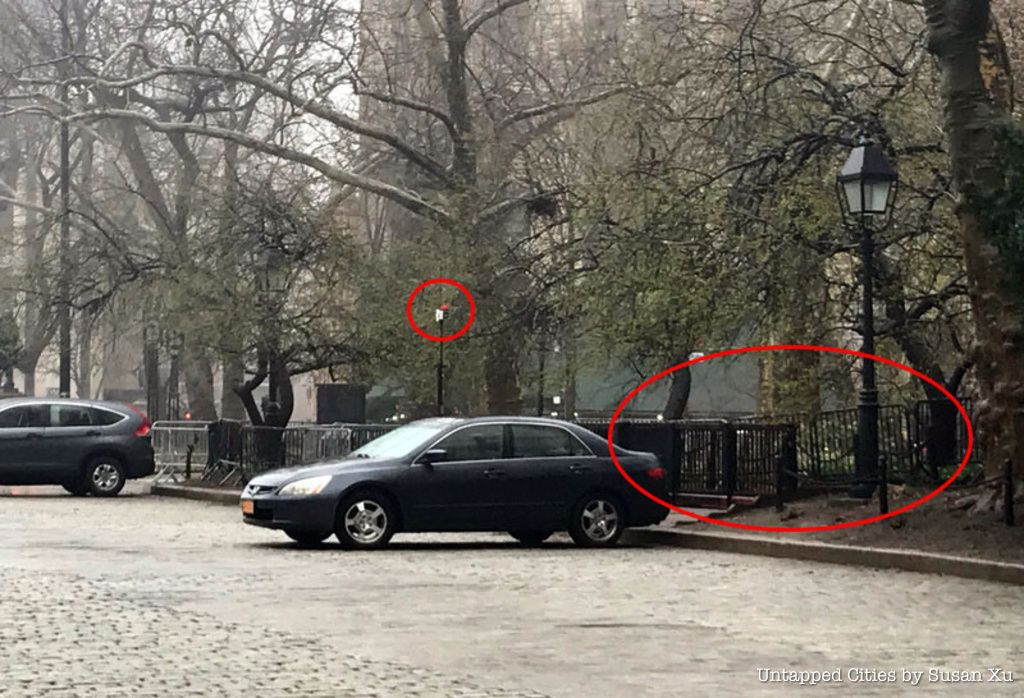
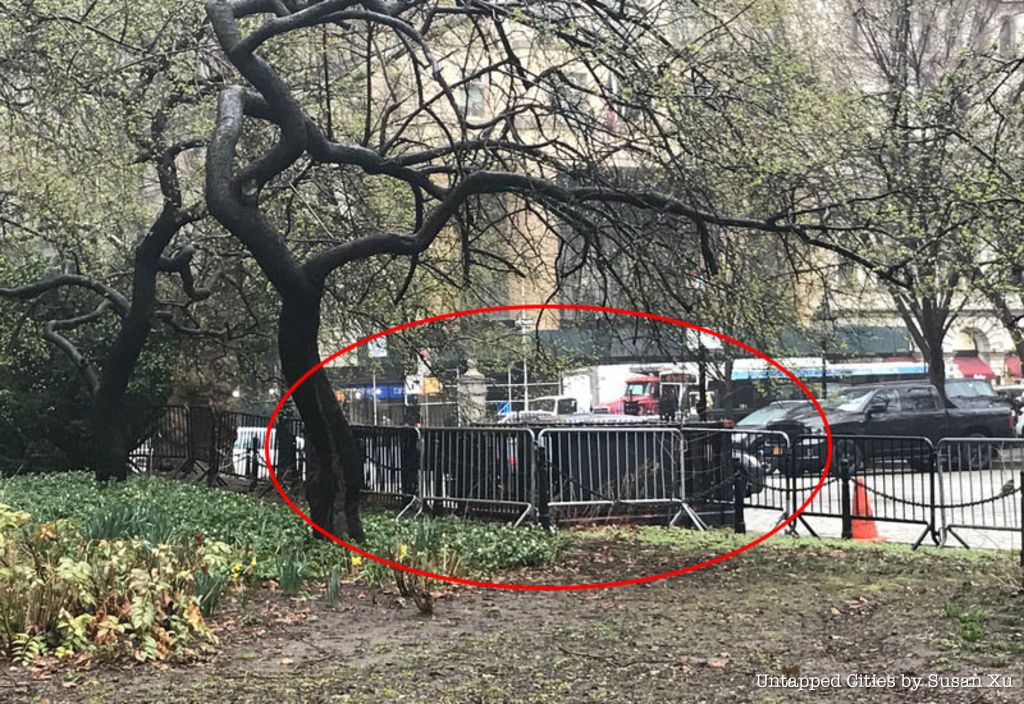
A view of the City Hall Subway Station entrance from another perspective
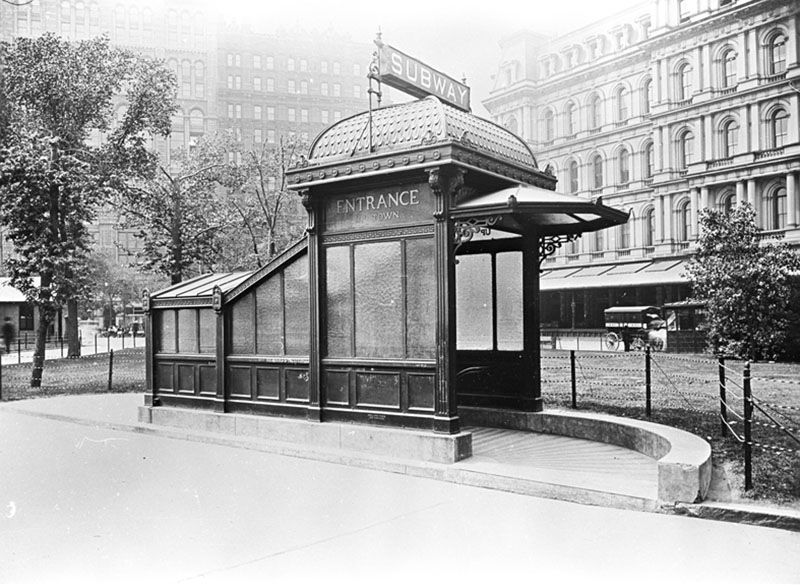
What the entrance to the City Hall Subway Station looked like during operation. Image from NY Transit Museum
In the same area, there are also three embankments of glass blocks, embedded in the concrete to allow natural light to filter into the station. The easiest one to spot is “on the northern most end of the park between the park fence on Broadway and the chess tables. You can clearly see it,” says Rivers. It’s pictured below:
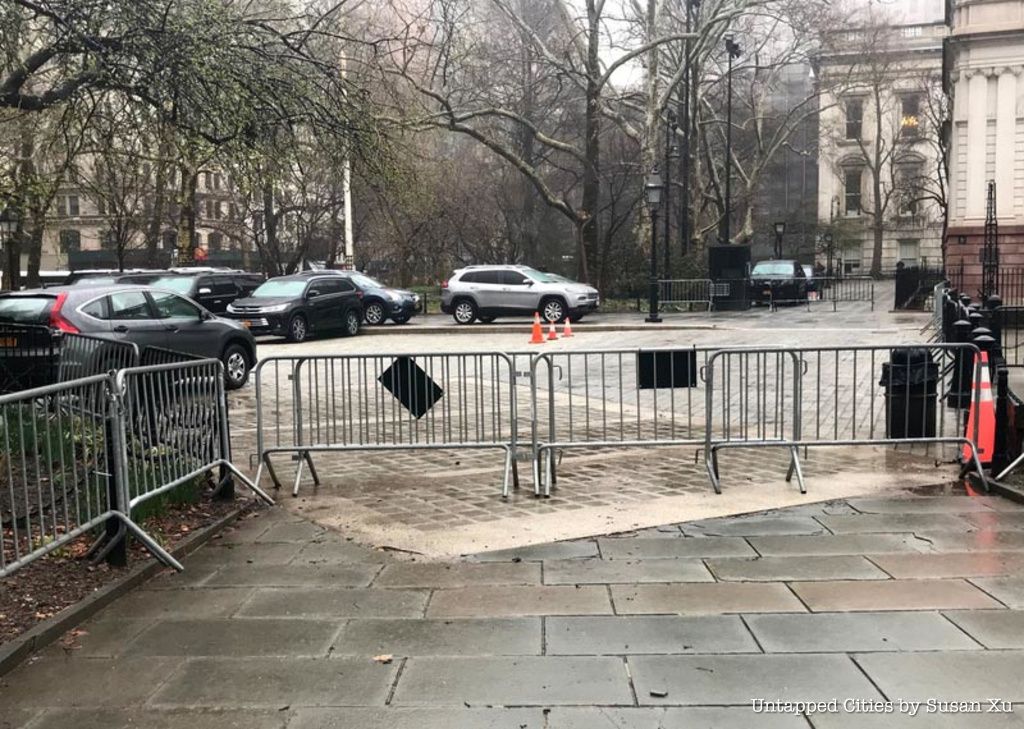
The other two skylights are located behind and in front of the one seen above. The second embankment sits directly in front of the security kiosk, while the third one is in the middle of the park’s lawn and usually covered in weeds (see below):
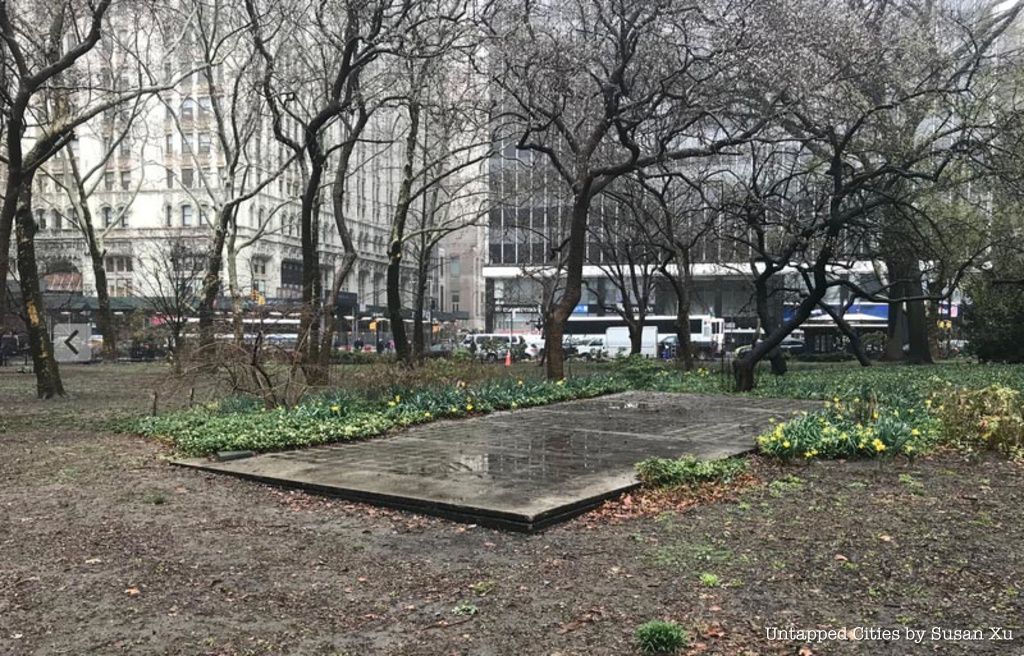
Additionally, there’s a small circular skylight (photo here), also found in the restricted area, that shines down into the mezzanine of the City Hall Station, pictured below:
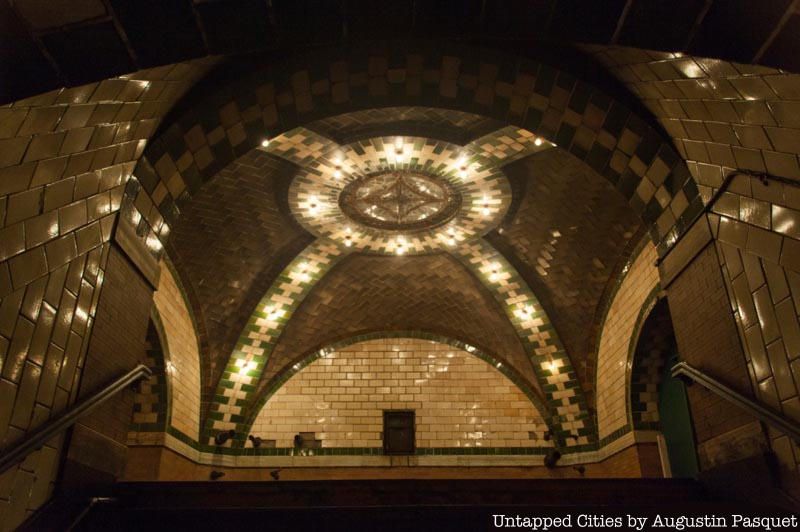
Another location of glass blocks is across from the Brooklyn Bridge:
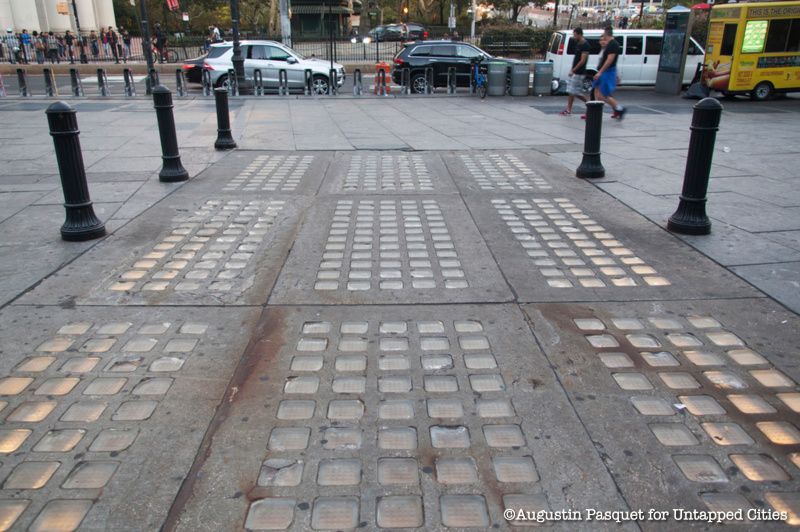
Glass skylights
To give you a clearer idea of the approximate location of everything, the following map from the New York Transit Museum archives shows where the three embankments and the mezzanine skylight are in relation to each other, indicated by the three red rectangles and the red dot, respectively.
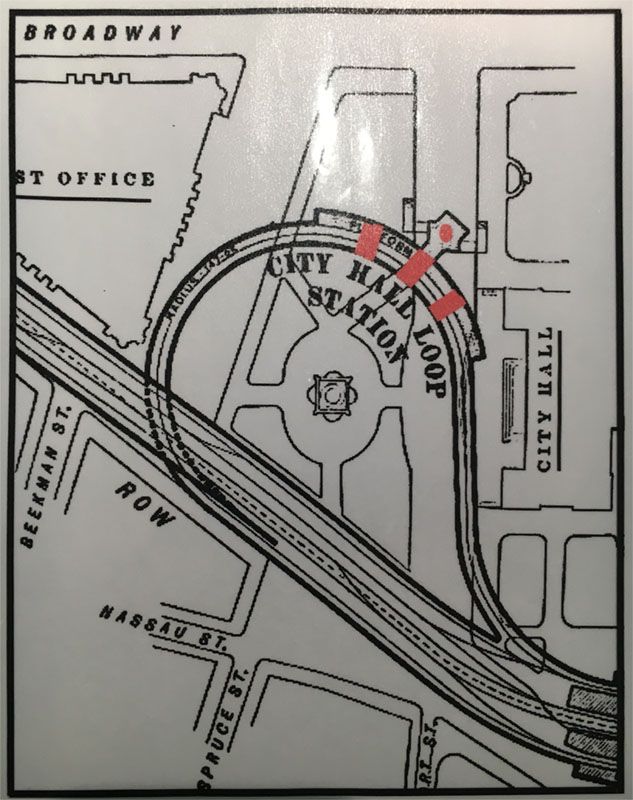
Image from NY Transit Museum
Aside from the more obvious remnants, one thing that has continuously caught our attention is the newsstand outside on Broadway, which Rivers tells us used to be City Hall station’s newsstand, designed by Heins and LaFarge. “…[T]he only thing I could never find out if it’s original or a recreation,” he says.
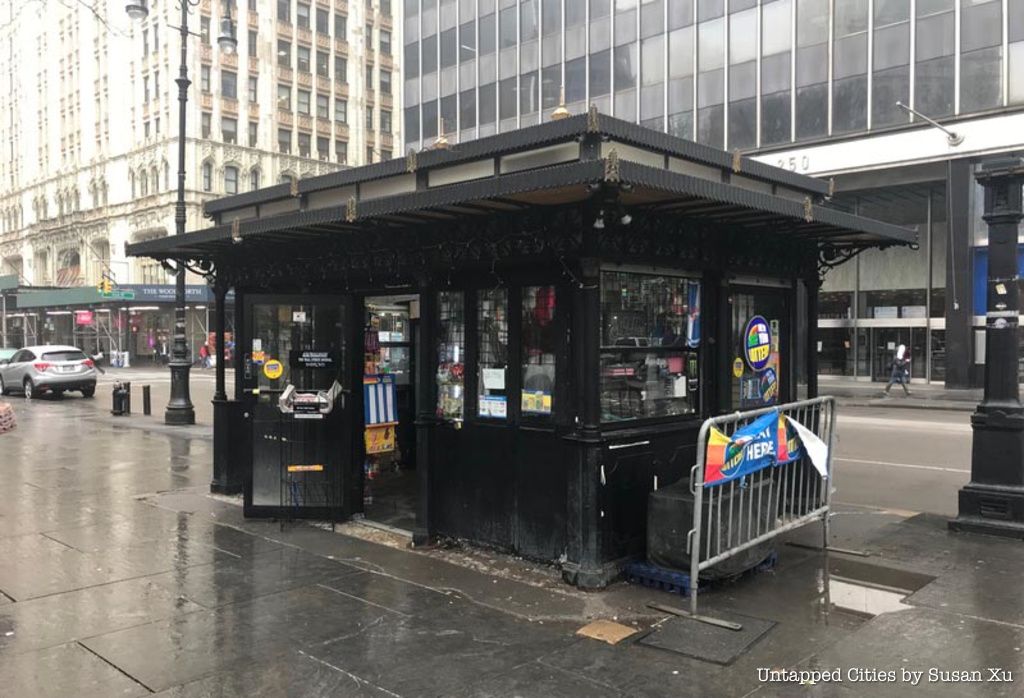
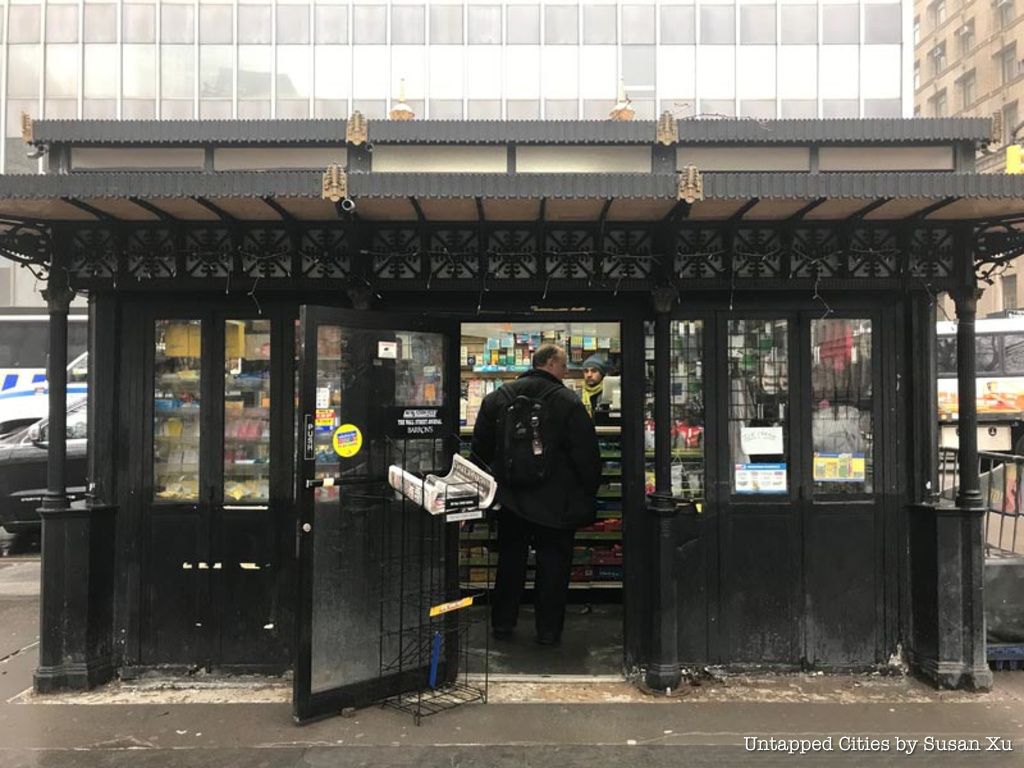
Next time you pay a visit to City Hall Park, make sure to keep your eyes peeled for these relics, which are sure to give you insight into the grandeur of the abandoned station that lies beneath your feet. In the meantime, here are some photos of our recent exploration there to whet your appetite. Make sure to also join us for our next Underground Tour of the NYC Subway for more history on the world’s largest rapid transit (in area):

Next, check out the Top 10 Secrets of the NYC Subway, see a sign from the night of City Hall Station’s closure, and read about the history of the Great White Fleet of Subway Cars.
Subscribe to our newsletter